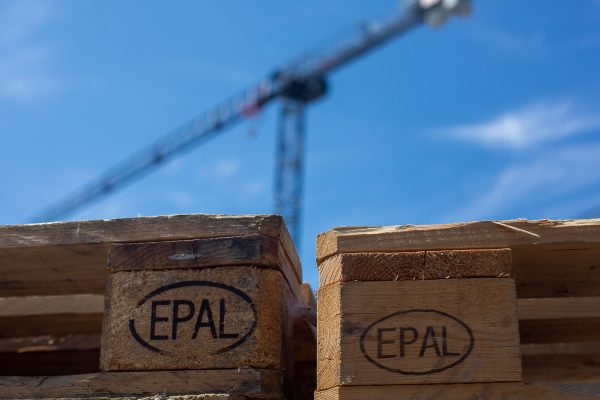The transitional phase beginning 1 October 2023 will cover carbon-intensive imports in six sectors — aluminium, cement, electricity, fertilisers, iron and steel and hydrogen — imposing only reporting requirements on importers. The CBAM charge will be effective from 1 January 2026 and will apply to imports from all countries except those linked to the EU Emissions Trading System (ETS) or with an equivalent carbon pricing mechanism.
The CBAM is expected to encourage decarbonisation at the global level while also preventing ‘carbon leakage’. But a careful review of the CBAM’s design and proposed implementation reveals inherent inconsistencies and contradictions with multilateral climate and trade agreements, as well as with the EU’s free trade agreements. If not suitably amended, the CBAM may end up being implemented more as an exclusionary trade policy tool than as an effective climate action tool.
In a deviation from the burden-sharing principle under the Paris Agreement, the CBAM makes no distinction and offers no concessions or exemptions to developing countries and least developed countries (LDCs). Given the lower institutional capabilities of developing countries and LDCs to set up domestic carbon markets or a comprehensive accounting and reporting system for the carbon-emitting intensity of production processes, due differentiation in burden-sharing ought to have been incorporated into the CBAM.
The inequitable design is further reinforced by the fact that the revenue collected from CBAM charges will be directed to the EU budget instead of being utilised to lead capacity-building initiatives in developing countries or LDCs.
This departure from the Paris Agreement is even more glaring when viewed against EU’s commitments in its free trade agreements. A distinct reference to the commitments of the Paris Agreement has always been included in chapters on trade and sustainable development in recent EU free trade agreements. For the first time, the EU–New Zealand free trade agreement signed in June 2022 provides for the application of trade sanctions for breaches related to the objectives and principles of the Paris Agreement.
The CBAM is also in apparent contradiction with multilateral trade norms. The fundamental World Trade Organization (WTO) non-discrimination principles of most favoured nation status and national treatment appear obfuscated by the CBAM. While the most favoured nation principle requires that similar products should not be discriminated against if coming from different trade partners, national treatment calls for non-discrimination among domestically produced goods and ‘like’ imported goods.
The EU justification for differential treatment of otherwise similar products is based on the differential carbon content of imports. But different process and production methods across countries can lead to varying levels of embedded carbon content in a ‘like’ good, making the CBAM a potentially discriminatory border tax and liable to challenges at the WTO.
In justifying its compliance with the principle of national treatment, the EU’s argument of parity between domestically produced and similar imported goods is based on the CBAM being an extension of the ETS that is already applied to domestic products. But as of April 2023 there are just 73 national or sub-national carbon pricing mechanisms covering only 23 per cent of global greenhouse gas emissions. It is hard to imagine how the CBAM can ensure ‘equivalence’ of imports from countries that have opted for different forms of climate regulation.
The implicit assumption of the CBAM is not just contrary to the spirit of ‘self-differentiation’, but also raises the more important question of extra-territoriality effects.
Even a broad interpretation of the general exceptions contained in Article XX of the General Agreement on Trade and Tariffs may not be sufficiently persuasive to demonstrate the CBAM’s WTO compliance. The EU will still be required to prove that the CBAM is non-discriminatory in its application and that it is not a ‘disguised restriction on international trade’.
In the broader trade context, the complexity of implementing the CBAM brings in an element of inequity. Given that there is a high likelihood of the CBAM triggering retaliatory carbon border taxes, global value chain-led trade will necessitate establishing rules of origin to account for the carbon content of every part and component at the point of origin. This will be a formidable task, particularly in complex global value chains involving multiple border crossings of parts and components, which will be beyond the administrative and institutional capabilities of many developing countries.
Most significantly, the fundamental premise of ‘carbon leakage’ is contradicted by available evidence. The broad inference drawn from extant empirical literature is that there is currently no conclusive evidence of a significant level of carbon leakage to provide a fair rationale for the CBAM. Relative to the costs of environmental protection, factors like labour costs, production factors, transparent regulation, a stable policy environment and property rights are all likely to have far greater weight in investment location decisions — even of polluting industries.
With the CBAM now included in planned discussions by the India–EU Trade and Technology Council, it is time for India to seek corrective action from the EU to ensure that the scarce diplomatic capital of developing countries and LDCs that has been spent on ensuring fair outcomes of multilateral climate and trade negotiations is not rendered wasteful by the CBAM.
Amita Batra is Professor of Economics at the School of International Studies of Jawaharlal Nehru University.
A version of this article was first published here by Business Standard.

